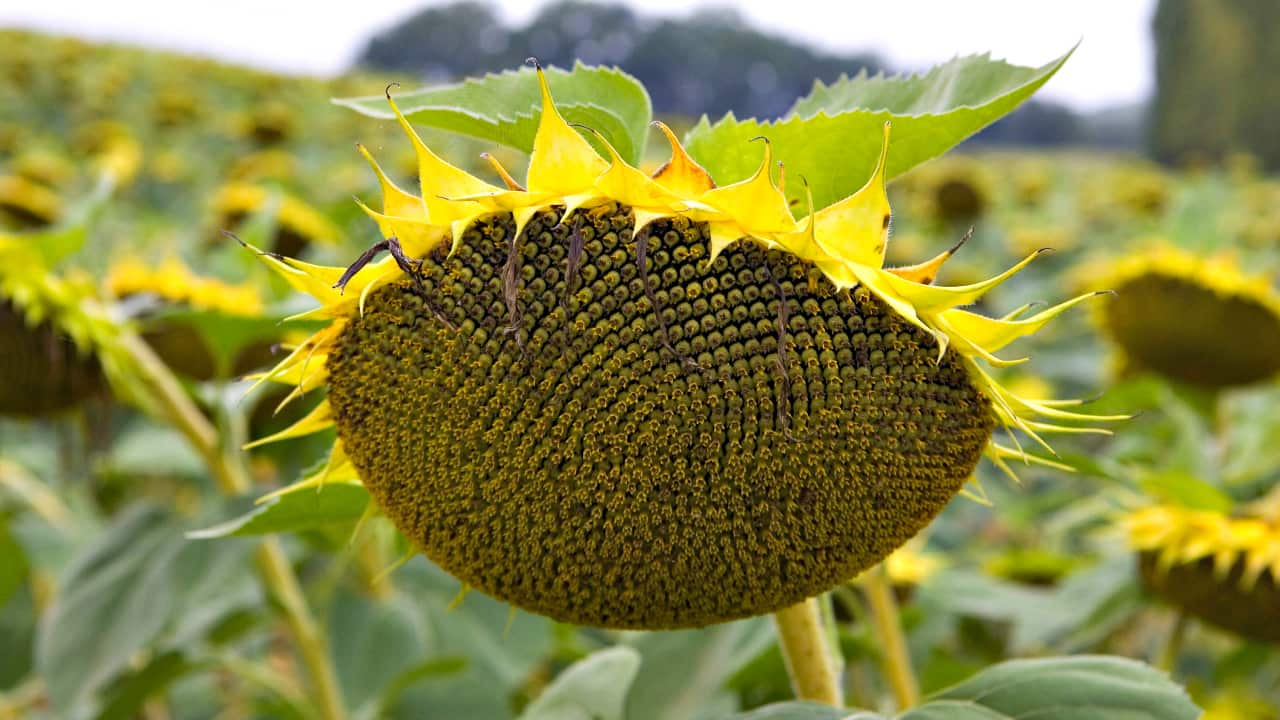A study by Michigan State University researchers has revealed an alarmingly high level of a toxin produced by molds in some sunflower seeds.
The study is one of the first seeking to identify the frequency of the toxin aflatoxin in sunflower seeds.
The chemical is produced by Aspergillus molds that are also found in corn, peanuts and almonds, with high level exposure is linked with necrosis of the liver, whilst continuing exposure to aflaxin increases the risk of developing liver and gallbladder cancer.
Conducted in Tanzania, the study analysed aflatoxin levels between 2014 and 2015, discovering that close to 60 per of seed samples and 80 per cent of the remaining cake product (the remnants after the seeds are pressed for oil) were contaminated with the toxin after coming into contact with the Asperfillus flavus or Aspergillus parasiticus moulds.
The study has implications beyond Tanzania: The same study states that the chemical is responsible for the death of between 25,000 and 155,000 people worldwide each year, from contamination in corn and peanuts alone.
Gale Strasburg, Michigan State’s food, science and human nutrition professor, says there is a need to further detect and limit aflatoxin’s presence in sunflower seeds given its prevalence in human consumption.
"These high aflatoxin levels, in a commodity frequently consumed by the Tanzanian population, indicate that local authorities must implement interventions to prevent and control aflatoxin contamination along the sunflower commodity value chain, to enhance food and feed safety in Tanzania," Strasburg says.
"Follow-up research is needed to determine intake rates of sunflower seed products in humans and animals, to inform exposure assessments and to better understand the role of sunflower seeds and cakes as a dietary aflatoxin source."

Should Australians be concerned?
SBS spoke with Dr John Pitt, Honorary Research Fellow at the CSIRO's Food Science unit, about the possible danger when it comes to local sunflower production. Dr Pitt says it is important to take the results of the study in context, highlighting that in comparison to maize (corn) and peanuts, sunflower seeds are utilised at a much lower rate.
Dr Pitt said that local conditions in which sunflowers are grown are not well-suited to fungal growth, greatly decreasing the likelihood of aflatoxin generation, while rules surrounding edible oil production only further eliminate the growth of the toxin.
“Sunflowers usually mature here under hot, dry conditions, so fungal growth and aflatoxin production is likely to be low,” Dr Pitt said.
"Sunflower oil, like all of our edible oils, is processed with alkali to remove free fatty acids (that cause rancidity). That process also removes aflatoxin."
“Sunflowers [seeds] and oil are unlikely to have other toxins present."
"The only Australian crop that regularly contains aflatoxins is peanuts, and aflatoxin in peanuts is tightly controlled by the industry (and Government regulation).”
SBS also spoke with Dr Lindsay Campbell, agricultural scientist and leader of the sciences group at Sydney University, who agreed, stating that the rigorous testing done at a number of stages in the farming process made the likelihood of sunflower seed aflatoxin outbreak in Australia incredibly unlikely.
Nick Goddard, executive director of the Australian Oilseeds Foundation, confirmed that while the majority of sunflower seeds and oil products are made locally, the large demand means that there are imported goods from countries including Argentina, Bulgaria and China.
A spokesperson from the Department of Agriculture and Water Resources discussed the biosecurity and imported food measures taken in effort to minimise the risk of transmission.
"Importers (commercial and personal) must apply for an import permit to import sunflower kernels for human consumption," the spokesperson said.
"Seeds must be devitalised so they are not capable of growing and introducing plant pathogens and they must be hulled before they are imported. These measures manage the biosecurity risk to an acceptable level.
"Under the Imported Food Control Act 1992, importers are responsible for ensuring the food they import does not pose a risk to human health...
"Imported sunflower seeds are inspected at the border for obvious signs of mould or other contamination that may pose a risk to human health. Product labelling is also assessed, including declaration of the country of origin."
Good news for sunflower seed supporters.
Lead image by pezibear via Pixabay.
SBS Food is a 24/7 foodie channel for all Australians, with a focus on simple, authentic and everyday food inspiration from cultures everywhere. NSW stream only. Read more about SBS Food
Have a story or comment? Contact Us

